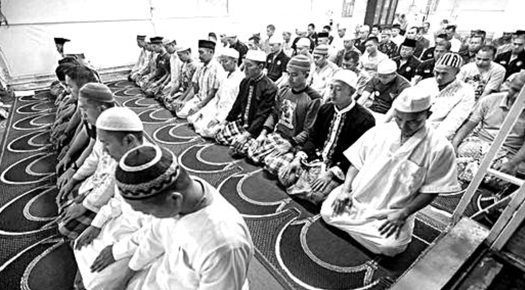
JAKARTA, Indonesia – Ahmad Mushaddeq, former badminton coach with the Indonesian national team, has been charged with blasphemy after he became the spiritual leader of a back-to-the-land organic farming movement called Milah Abraham on the island of Borneo. Now he is sentenced to five more years in prison and two other leading figures of Milah Abraham also got prison sentences.
“The verdict is another indicator of rising discrimination against religious minorities in Indonesia,” said Andreas Harsono, the Indonesian representative for Human Rights Watch. Indonesia, a Muslim-majority nation, has “a broken system of pluralism,” according to Al Makin, a professor at Sunan Kalijaga State Islamic University in Yogyakarta, who testified as an expert witness on behalf of Milah Abraham at the three men’s trial.
Despite the fact that Indonesia has long been recognized as a relatively moderate Muslim country, a cross-national study on religious restrictions published by Pew in September 2012 showed that Indonesia was actually one of the world’s most religiously restrictive states. Both metrics used in the study — government restrictions on religion and social hostilities involving religion — have “very high” ratings in Indonesia.
In 2016, Yogyakarta, the capital of the Yogyakarta Special Region, has also become a centerpiece of a hard-line Islamist campaign to subdue Indonesia’s minority groups — a category that includes Christians, minority Muslim sects, progressive student groups, and the LGBT community. Growing intolerance in Indonesia included the burning of a Baptist church, an assault on Afghan Shi‘ite Muslim refugees, the refusal by local government leaders to allow ethnic Dayak students from rural Borneo to hold a traditional ceremony and the forcible suspension of Pondok Pesantren al-Fatah, which had been the world’s only transgender Islamic boarding school. Municipal authorities have long promoted the city with the slogan “City of Tolerance,” but after these abuses a big question mark could be put on that title.
The similar question hangs over the rest of Indonesia. Apparently — though the Indonesian Constitution ostensibly guarantees freedom of religion — that freedom does not extend to new religious movements. The state authorizes just six official religions: Islam, Protestantism, Catholicism, Buddhism, Hinduism and Confucianism.
Photo Credits: We Love Indonesia
